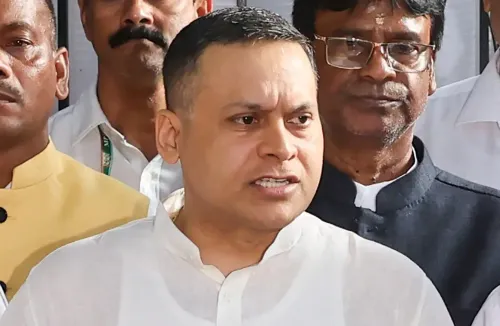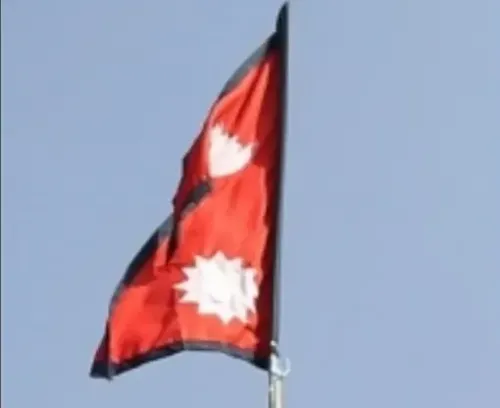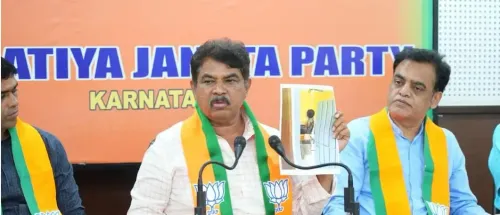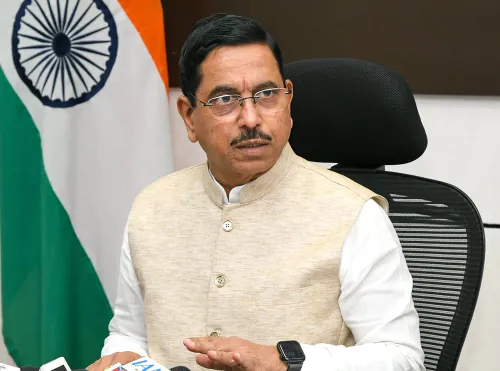Did the Telangana Assembly Just Pass Two Bills for 42% BC Quota?
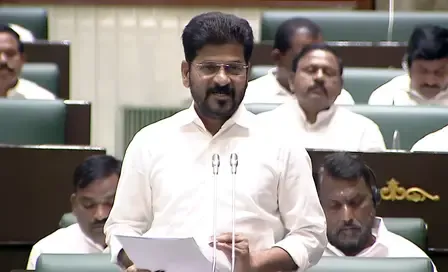
Synopsis
Key Takeaways
- The Telangana Assembly passed two Bills for 42% BC reservation.
- Political tensions arose between ruling Congress and BRS.
- Chief Minister criticized previous government's handling of BC reservations.
- Upcoming elections will be influenced by this new quota.
- A caste survey was conducted to support these changes.
Hyderabad, Aug 31 (NationPress) The Telangana Assembly successfully approved the Telangana Municipalities and Panchayat Raj amendment Bills, establishing a 42 per cent reservation for Backward Classes (BCs) in urban and local governing bodies.
The Telangana Municipalities (Third Amendment) Bill, 2025 and Telangana Panchayat Raj (Third Amendment) Bill, 2025 were passed via a voice vote following a brief yet intense debate, where the ruling Congress and the principal opposition party, Bharat Rashtra Samithi (BRS), exchanged accusations regarding the failure to implement the increased BC reservation.
Chief Minister A. Revanth Reddy criticized the former BRS administration, claiming it reduced BC reservations to stay within an overall 50 per cent reservation cap.
The BRS, in turn, questioned the Congress government's sincerity in delivering on its promise of a 42 per cent BC quota. BRS leader K. T. Rama Rao expressed concern over the silence of Lok Sabha Opposition Leader Rahul Gandhi on this matter in Parliament.
On the second day of the Assembly Session, the government introduced two Bills aimed at increasing BC reservation in local bodies to 42 per cent by abolishing the 50 per cent cap applicable to all categories.
Ponnam Prabhakar, Minister for Backward Classes Welfare, assured that the government would enforce the 42 per cent reservation for BCs in the forthcoming local body elections.
BRS member Gangula Kamalakar claimed that the government was insincere about the BC reservation issue and questioned why an all-party delegation hadn't traveled to Delhi to advocate for Presidential approval for two Bills passed in March regarding 42 per cent BC reservations in education, employment, and local bodies.
During the debate, Chief Minister Revanth Reddy accused the BRS of misleading the Assembly, asserting that the legislation passed by the previous BRS government hampered the enhancement of the BC quota.
He alleged that former Chief Minister and BRS leader K. Chandrasekhar Rao opposed BC empowerment and created obstacles to pass the Bills.
He indicated that the Panchayat Raj Act 2018 and the Municipalities Act 2019, enacted during the BRS tenure, restricted the quota increase beyond 50 per cent.
The Chief Minister stated that the two Bills approved in March have been with the Governor for five months, awaiting action from the President. He mentioned that the government had submitted a draft ordinance to the Governor for 42 per cent BC reservation in local bodies, but the opposition party influenced the Governor to halt its promulgation.
He also questioned the BRS for failing to support a significant protest held at Jantar Mantar in New Delhi.
The Chief Minister noted that the state government had reached out to Prime Minister Narendra Modi five times for an appointment, but received no positive response.
He urged BJP Assembly floor leader Payal Shankar to assist in securing a meeting with the Prime Minister.
Detailing the state government's unwavering efforts to boost the BC quota, the Chief Minister explained that the Dedication Commission was formed as per High Court directives. A caste survey was conducted through this Commission to facilitate 42 per cent reservation.
He also stated that a caste survey was performed, and based on its outcomes, two Bills were drafted and subsequently passed in March.

